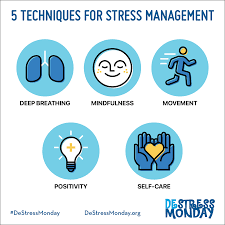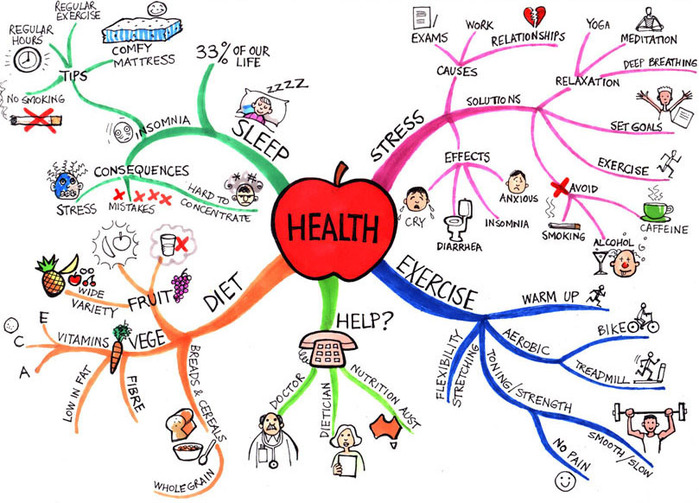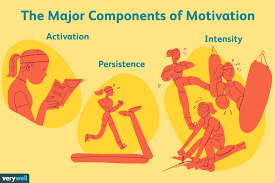Managing Stress: Strategies for a Healthier Life
Stress is a common part of life, but when left unchecked, it can have detrimental effects on our physical and mental well-being. Learning how to manage stress effectively is essential for leading a healthier and more balanced life.
Identify Your Stressors
The first step in managing stress is identifying what triggers your stress. It could be work-related pressure, relationship issues, financial worries, or health concerns. By recognizing these stressors, you can begin to address them proactively.
Practice Relaxation Techniques
Engaging in relaxation techniques such as deep breathing exercises, meditation, yoga, or progressive muscle relaxation can help calm your mind and body. These practices promote relaxation and reduce the physical symptoms of stress.
Stay Active
Regular physical activity is not only beneficial for your physical health but also plays a crucial role in managing stress. Exercise releases endorphins, the body’s natural mood boosters, which can help reduce feelings of anxiety and improve overall well-being.
Maintain a Healthy Lifestyle
Eating a balanced diet, getting an adequate amount of sleep, and avoiding excessive alcohol and caffeine consumption are essential components of managing stress. A healthy lifestyle supports your body’s ability to cope with stress more effectively.
Seek Support
Don’t be afraid to reach out for support from friends, family, or mental health professionals when you’re feeling overwhelmed by stress. Talking about your feelings and seeking guidance can provide valuable perspective and help you navigate challenging situations.
Establish Boundaries
Learnto say no to tasks or commitments that add unnecessary stress to your life. Setting boundaries and prioritizing self-care allows you to focus on what truly matters and avoid spreading yourself too thin.
Practice Mindfulness
Mindfulness involves staying present in the moment without judgment. By practicing mindfulness techniques such as mindful breathing or mindful eating, you can cultivate greater awareness and resilience in the face of stressful situations.
Conclusion
Managing stress is an ongoing process that requires self-awareness and proactive strategies. By incorporating relaxation techniques, staying active, maintaining a healthy lifestyle, seeking support when needed,and practicing mindfulness,you can build resilienceand lead a more balanced life despite life’s challenges.
7 Benefits of Effective Stress Management: Boost Your Health, Focus, and Relationships
- Improved overall health and well-being
- Enhanced ability to focus and concentrate
- Better sleep quality and patterns
- Reduced risk of developing stress-related illnesses
- Increased resilience in facing challenging situations
- Enhanced emotional stability and mental clarity
- Improved relationships with others through better stress management
6 Challenges in Effectively Managing Stress
- Managing stress requires consistent effort and commitment, which may be challenging for individuals with busy schedules.
- Some stress management techniques may not be effective for everyone, leading to frustration and a sense of failure.
- It can be difficult to identify and address all sources of stress in one’s life, potentially leaving underlying issues unresolved.
- Over-reliance on stress management strategies may prevent individuals from addressing root causes of stress or seeking professional help when needed.
- Certain relaxation techniques or lifestyle changes recommended for managing stress may require time, resources, or access to specific facilities.
- In some cases, managing stress independently without professional guidance may result in inadequate support or ineffective coping mechanisms.
Improved overall health and well-being
Effectively managing stress leads to improved overall health and well-being. By implementing stress management techniques such as relaxation exercises, regular physical activity, and healthy lifestyle choices, individuals can reduce the negative impact of stress on their bodies. Lowering stress levels can result in better immune function, reduced risk of chronic diseases, improved sleep quality, enhanced mental clarity, and increased energy levels. Prioritizing stress management not only fosters a healthier body but also contributes to a more balanced and fulfilling life.
Enhanced ability to focus and concentrate
Managing stress effectively can lead to an enhanced ability to focus and concentrate. When stress levels are high, our minds can feel scattered and overwhelmed, making it difficult to pay attention to tasks at hand. By implementing stress management techniques such as relaxation exercises, mindfulness practices, and regular physical activity, individuals can improve their cognitive function and mental clarity. Reduced stress allows for better concentration, increased productivity, and the ability to tackle challenges with a clear and focused mind.
Better sleep quality and patterns
Effectively managing stress can lead to improved sleep quality and patterns. When stress levels are high, it can be challenging to relax the mind and body enough to fall asleep and stay asleep throughout the night. By implementing stress management techniques such as relaxation exercises, mindfulness practices, and healthy lifestyle habits, individuals can reduce the impact of stress on their sleep. Better sleep quality not only enhances overall well-being but also boosts cognitive function, mood regulation, and physical health. Prioritizing stress management can result in more restful nights and increased energy levels during the day.
Reduced risk of developing stress-related illnesses
One significant benefit of effectively managing stress is the reduced risk of developing stress-related illnesses. Chronic stress can have a profound impact on our physical health, contributing to conditions such as hypertension, heart disease, digestive disorders, and weakened immune function. By implementing stress management techniques and strategies, individuals can lower their overall stress levels, thereby decreasing the likelihood of experiencing these detrimental health outcomes. Prioritizing stress management not only enhances mental well-being but also plays a crucial role in safeguarding our physical health and reducing the risk of developing stress-related illnesses in the long term.
Increased resilience in facing challenging situations
One significant benefit of effectively managing stress is the development of increased resilience when facing challenging situations. By learning how to cope with stress in a healthy manner, individuals can build emotional strength and adaptability, enabling them to navigate difficult circumstances with greater ease and composure. This enhanced resilience allows individuals to bounce back from setbacks more quickly, maintain a positive outlook in the face of adversity, and approach challenges with a sense of confidence and determination.
Enhanced emotional stability and mental clarity
Managing stress effectively can lead to enhanced emotional stability and mental clarity. By implementing stress management techniques such as mindfulness, relaxation exercises, and seeking support when needed, individuals can cultivate a greater sense of emotional balance and resilience. This heightened emotional stability allows for better decision-making, improved focus, and clearer thinking in challenging situations. When stress is managed well, individuals are better equipped to navigate their emotions and maintain a calm and composed mindset, leading to improved overall mental well-being.
Improved relationships with others through better stress management
Improved relationships with others can be a significant benefit of effective stress management. When individuals are better equipped to handle stress, they are less likely to react impulsively or irrationally in challenging situations. By maintaining a sense of calm and composure, individuals can communicate more effectively, listen attentively, and show empathy towards others. This enhanced emotional intelligence and interpersonal skills foster stronger connections and deeper understanding in relationships, ultimately leading to healthier and more fulfilling interactions with others.
Managing stress requires consistent effort and commitment, which may be challenging for individuals with busy schedules.
Managing stress requires consistent effort and commitment, which may be challenging for individuals with busy schedules. The demands of work, family, and other responsibilities can make it difficult to prioritize self-care practices that help alleviate stress. Finding the time to engage in relaxation techniques, exercise regularly, maintain a healthy lifestyle, and seek support may seem overwhelming when juggling multiple commitments. Without dedicated time and energy devoted to stress management, individuals may find themselves caught in a cycle of heightened stress levels that impact their overall well-being. Balancing the need for stress management with a hectic schedule requires intentional planning and a willingness to prioritize personal health and wellness.
Some stress management techniques may not be effective for everyone, leading to frustration and a sense of failure.
It is important to acknowledge that some stress management techniques may not yield the desired results for everyone, which can result in feelings of frustration and inadequacy. Individuals may try various strategies such as meditation, exercise, or relaxation techniques, only to find that they do not experience the expected relief from stress. This perceived lack of effectiveness can lead to a sense of failure and discouragement, making it crucial to explore alternative approaches and seek support tailored to individual needs and preferences in managing stress effectively.
It can be difficult to identify and address all sources of stress in one’s life, potentially leaving underlying issues unresolved.
Managing stress can pose a challenge when it comes to identifying and addressing all sources of stress in one’s life. The complexity of modern-day living means that individuals may struggle to pinpoint every factor contributing to their stress levels, leaving underlying issues unresolved. This can lead to a cycle of persistent stress and anxiety, as unaddressed sources continue to impact mental and physical well-being. Without a comprehensive understanding of all stressors, individuals may find it difficult to implement effective strategies for managing and reducing stress in a holistic manner.
Over-reliance on stress management strategies may prevent individuals from addressing root causes of stress or seeking professional help when needed.
An important con of relying solely on stress management strategies is that individuals may become so focused on managing the symptoms of stress that they overlook addressing the underlying root causes. By constantly applying coping mechanisms without addressing the source of their stress, individuals may miss out on opportunities to make meaningful changes in their lives that could reduce stress in the long term. Moreover, an over-reliance on self-help techniques may deter individuals from seeking professional help when necessary, potentially delaying or hindering their ability to receive targeted support and guidance in managing and resolving their stressors effectively.
Certain relaxation techniques or lifestyle changes recommended for managing stress may require time, resources, or access to specific facilities.
Certain relaxation techniques or lifestyle changes recommended for managing stress may present a con in terms of accessibility and resources. For example, activities such as regular visits to a spa for massages, joining a yoga studio, or attending mindfulness retreats may require financial investment and time commitments that not everyone can afford. Additionally, access to specific facilities or resources, such as a quiet meditation space or specialized equipment for certain relaxation techniques, may pose challenges for individuals with limited means or living in remote areas. This lack of accessibility can hinder some people from fully engaging in stress management practices that could otherwise benefit their well-being.
In some cases, managing stress independently without professional guidance may result in inadequate support or ineffective coping mechanisms.
In some cases, attempting to manage stress independently without professional guidance can lead to inadequate support or ineffective coping mechanisms. Without the expertise and personalized strategies provided by a trained professional, individuals may struggle to address the root causes of their stress effectively. This can result in temporary relief or reliance on unhealthy coping mechanisms that fail to provide long-term solutions. Seeking professional guidance can offer tailored support and evidence-based techniques to help individuals develop sustainable stress management skills and navigate challenges more effectively.




